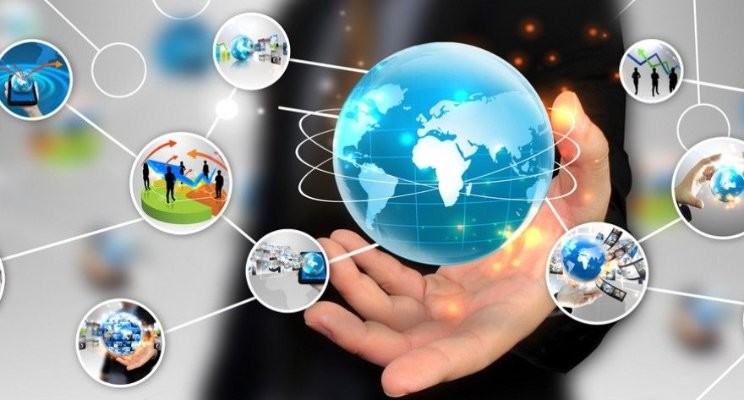How Science and Technology Are Changing the World

Science’s evolution is a gift to the world because humans learn so much about the world they live in, including the activities they engage in. Furthermore, advances in science and technology have contributed to a revolution in a wide range of fields, including medicine, agriculture, education, information and technology, and many others.
What exactly is technology?
Technology (from the Greek phrase ‘technologia’) is an art, talent, or aptitude used to create and develop products as well as gain knowledge.
Scientists used their skills to develop technology, and then technology was used to develop science; as a result, in the modern world, science and technology are identical terms.
Consider the following points to better understand the relationship between Science and Technology:
The Role of Science in Technology
The Impact of Technology on Science
Let’s go through these subjects fast.
What is science, exactly?
Science is fundamentally the scientific exploration of the structure and behavior of the natural and physical worlds via observations and experiments.
Science as a discipline arose alongside human civilization.
The Role of Science in Technology
Consider how Science has helped Technology.
Science serves as a direct source of new technical ideas.
Medical instrument development, nuclear technology, radar systems, and so on are examples.
Science as a source of engineering
The majority of technical information used in the planning and development of tools and processes is fundamentally a product of “engineering science.”
The Impact of Technology on Science
Consider the following points to gain a better understanding of technology’s contribution to science:
Technology as a source of scientific challenges
The evolution of technology allows for scientific investigation and progress. One of them, for example, is space science. Indirectly, technological advancement promotes basic scientific research.
Instrumentation and measurement methods
Scientists were able to measure the distance between the sun and the earth, the intensity of the sun’s rays, the rotation of celestial bodies, human bodily illnesses, the life of a bridge, and other things thanks to the creation of modern devices.
A Powerful Partnership
Science and technology are interdependent partners who work together to move our civilization forward. With its voracious curiosity and systematic research, science sets the groundwork for technological progress. Meanwhile, technology takes scientific findings and turns them into practical applications that improve our quality of life.
Improved Communication and Connectivity
The digital revolution, propelled by technology advancements, has transformed communication. The internet, a scientific and technological miracle, has brought the world closer together than ever before. Social media, video conferencing, and instant messaging have broken down geographical barriers, allowing people to interact and collaborate regardless of where they are. This connection has facilitated worldwide communication while also sparking social and political transformation.
Science and Technology for Healing
Medicine and healthcare have undergone massive transformations as a result of the convergence of science and technology. Medical imaging, genetic research, and data analytics advancements have transformed diagnostics and treatment. Precision medicine, a unique technique that tailors medical care to an individual’s genetic makeup, has the potential to improve treatment efficacy while decreasing side effects. Furthermore, wearable health technology and telemedicine have empowered people to take control of their health, making healthcare more accessible and individualized.
Innovative Sustainability for a Better Tomorrow
Science and technology are at the vanguard of the fight against climate change as the world grapples with environmental concerns. Renewable energy sources like solar and wind power have gained popularity as viable alternatives to fossil fuels. Battery technology and energy storage breakthroughs are paving the path for a more sustainable energy landscape. Furthermore, novel solutions such as vertical farming and lab-grown meat highlight how science and technology can address food security while also reducing agriculture’s ecological footprint.
Space Science and Beyond
Space exploration symbolizes the confluence of scientific discovery and technical skill. Robotic rovers have disclosed the mysteries of faraway planets, while telescopes such as the Hubble Space Telescope have revealed the astounding splendor of the universe. Commercial initiatives headed by innovative entrepreneurs are pushing the boundaries of space travel and colonization, igniting interest in humanity’s future beyond Earth.
Conclusion
The powerful pair of science and technology continues to alter our world in deep ways, influencing every aspect of human existence. Their significance is undeniable, ranging from communication and healthcare to sustainability and space exploration. As we move forward, the responsible and ethical application of these developments will be critical in guiding us toward a brighter, more inclusive, and more sustainable future. We can harness the power of science and technology to construct a world that reflects the best of our human potential by fostering collaboration among scientists, technologists, politicians, and the general public.
FAQs
What’s the connection between science and technology?
Science and technology are inextricably linked. Science is the methodical study and comprehension of natural events that leads to knowledge and discoveries. In contrast, technology is the actual application of scientific knowledge to solve problems, develop tools, and enhance processes, eventually generating innovation and progress.
What contribution does science provide to our understanding of the universe?
Science, particularly fields such as astronomy and physics, aids in our understanding of the universe by delving into the underlying rules that govern it. Observations, experiments, and hypotheses help us to understand the mysteries of space, time, and the beginning of the cosmos.
Can technology ever completely replace human labor?
Technology has the potential to automate certain jobs and contribute to job displacement in some areas, but it also has the potential to offer new opportunities. To remain competitive in the employment market, it is critical to adapt and develop skills that match technological advancements.




